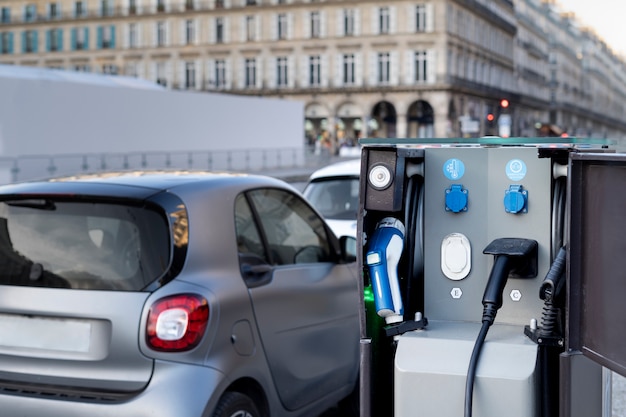
Electric vehicles (EVs) are becoming increasingly popular. With new models hitting the market and charging networks expanding rapidly, it’s starting to feel like electric cars are becoming just as common as traditional gas-powered vehicles. However, EVs bring new challenges. Drivers have to adapt to longer charging times, pay closer attention to range, and get familiar with the specifics of electric car warranties.
One key difference with EVs is in their warranties. While warranties for electric and non-electric cars might seem similar at first glance, they cover very different components due to the distinct nature of their power sources. Understanding an EV warranty can be crucial—it might save you from paying thousands out of pocket for a battery replacement.
To grasp EV warranties, let’s first look at car warranties in general. Both new EVs and internal combustion engine (ICE) vehicles typically come with two kinds of warranties. The basic or bumper-to-bumper warranty covers nearly every part of the car except routine maintenance, usually up to three years or 36,000 miles. The powertrain warranty, which lasts longer, covers essential components related to the car’s propulsion.
For ICE vehicles, the powertrain warranty includes the engine, transmission, and drivetrain—parts that are often expensive to fix. For EVs, this warranty usually covers the battery and the electric drive units (motors). The basic warranty is typically the same for both types of vehicles, covering components like braking and steering systems, which are common to both EVs and ICE vehicles.
According to David Undercoffler, editor-in-chief for Autolist, while these warranties cover similar components in ICE and EVs, EVs have fewer moving parts. This means there are fewer components that need to be covered in an EV warranty compared to a gas-powered car.
The battery warranty stands out as the most crucial part of an EV’s coverage. Randy Barone, vice president of business development at ACV, explains that the battery is the most valuable part of an EV, with replacement costs sometimes exceeding $30,000. Battery warranties can vary by manufacturer, leading to some confusion. For example, Tesla offers coverage for up to eight years or 120,000 miles, whereas other manufacturers might offer less. Thankfully, government regulations require automakers to provide a minimum battery warranty of eight years or 100,000 miles.
However, even if your EV’s battery is under warranty, it doesn’t guarantee a replacement in every situation. Some warranties only cover total battery failure, while others promise that the battery will retain a certain level of charge during the warranty period. For instance, both Kia and Tesla guarantee that their batteries will hold at least 70% of their original charge for the warranty’s duration. This means that if your battery drops to 70% capacity, you might not qualify for a repair or replacement, even though 70% represents a significant reduction in range.
For used EVs, things can get even more complicated. Not all battery warranties are transferable to new owners, which means if you buy a used EV, you might not get any battery warranty coverage. It’s essential to check if the warranty transfers when purchasing a used EV and to contact the manufacturer to confirm the transfer.
EV battery warranties can be voided in various ways, which can differ from one car manufacturer to another and even between models. Misusing the vehicle can void the warranty. For example, using a Mustang Mach-E to tow something could void its warranty, whereas towing with an F-150 Lightning would not. Tampering with the battery or using the car in ways not intended by the manufacturer can also void the warranty.
To avoid losing your warranty coverage, carefully review what actions could potentially void it. After all, you don’t want to be caught without warranty protection when you need it most.
So, what do major EV brands offer in terms of battery warranties? Here’s a rundown:
– Tesla: Offers at least an eight-year, 100,000-mile battery warranty, with a promise of 70% battery capacity over that period, and up to 150,000 miles for some models. This warranty is transferable to new owners.
– Hyundai Motor Group (Hyundai, Kia, Genesis): Provides a 10-year, 100,000-mile battery warranty with a 70% capacity guarantee, which is also transferable.
– Ford: Offers an eight-year, 100,000-mile battery warranty, ensuring 70% battery capacity and is transferable to other owners.
– Volkswagen: Gives an eight-year, 100,000-mile battery warranty with a 70% capacity guarantee, transferable to secondary owners.
– BMW: Has an eight-year, 100,000-mile battery warranty with a 70% capacity guarantee, also transferable.
– Lucid: Offers an eight-year, 100,000-mile battery warranty with a 70% capacity guarantee, transferable to subsequent owners.
– Rivian: Provides an eight-year warranty with coverage up to 150,000 or 175,000 miles, depending on the vehicle, with a 70% capacity guarantee, and transferable to additional owners.
In summary, EV warranties generally include basic and powertrain (battery) coverage. Battery warranties must cover at least eight years or 100,000 miles in the U.S., ensuring replacement for defects or significant capacity loss. However, be careful not to void the warranty by misusing the vehicle, and ensure the warranty is transferred if you’re purchasing a used EV. Carefully reading the battery warranty terms before buying can make a significant difference as the battery ages.